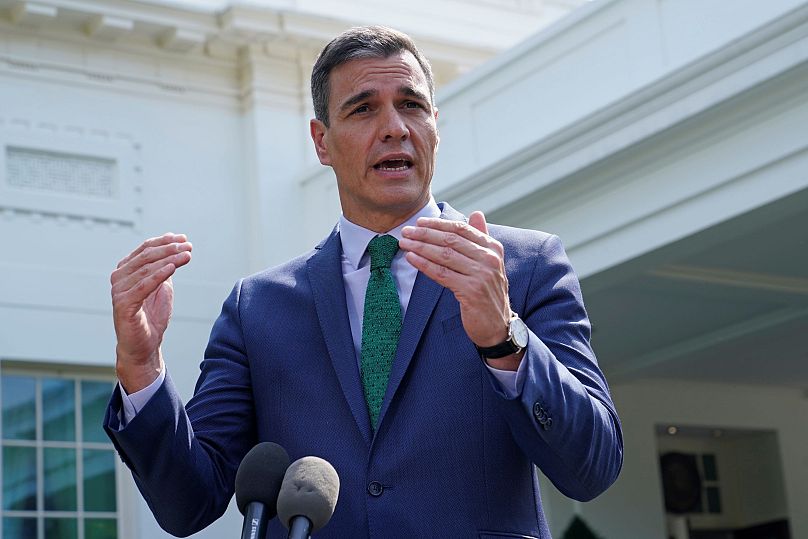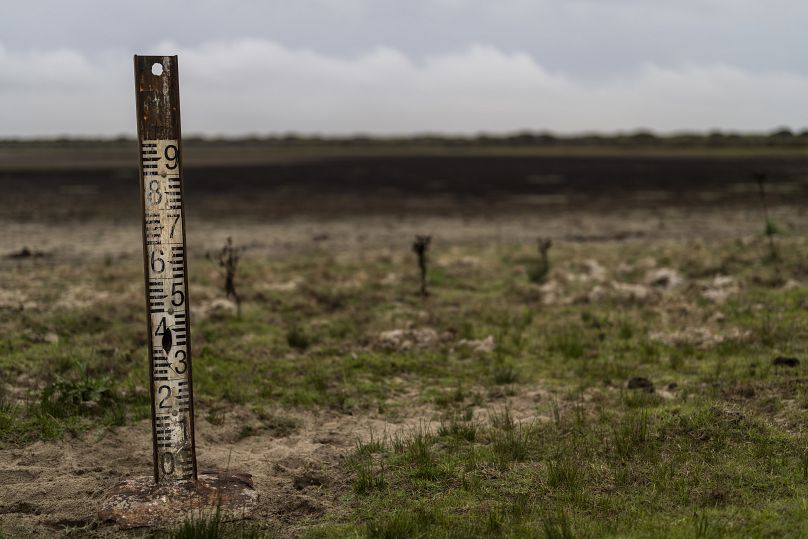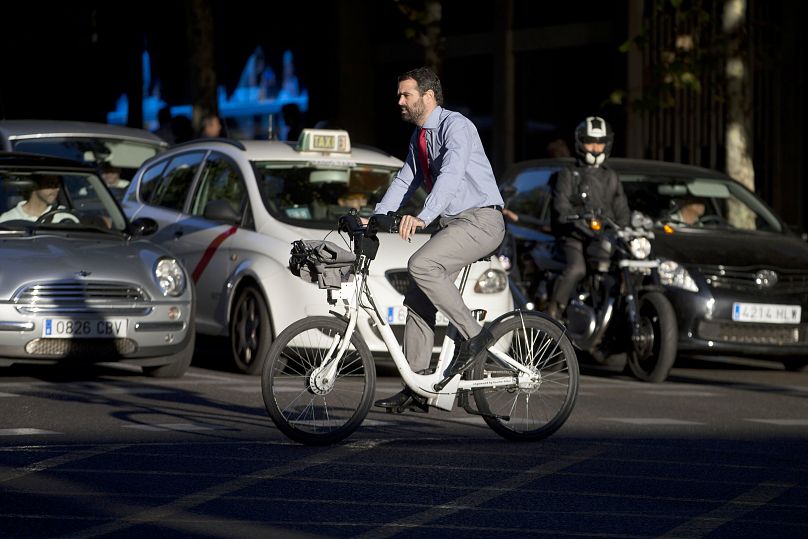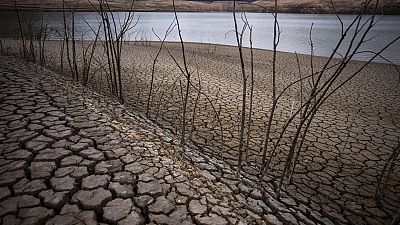Spain is dealing with a historic drought. But will it be enough to push the issue to the forefront of voters' minds tomorrow?
In a bland office in Madrid, weather forecasters warning of continued droughts are called “murderers” and “liars” by climate change deniers on Twitter.
In a parched olive-growing region, believers march solemnly through the baking streets carrying an icon of a Catholic saint in the hope it will bring rain.
In parliament, a right-wing MP asks whether the government is using aeroplanes to alter the weather, echoing the long-running “chemtrail” conspiracy theory.
On the cusp of regional and municipal elections on 28 May, Spain is experiencing a historic drought that has catapulted climate change up the agenda as the country prepares to vote.
Concerns that the summer might bring restrictions on water use have focused attention on environmental issues for the first time in recent elections.
Almost 9 in 10 Spaniards say they are worried about drought, according to a recent poll. A similar majority acknowledges humans' role in driving climate change and the increase in extreme weather events.
But whether this will translate into greater ambition on climate action in the long run is less clear.
Spain is on the frontline of European climate change
“The effects of climate change are clearly unequivocal in Spain, even more so than in many other countries. Each year we have heatwaves that are worse than the last,” says Marc Guinjoan, associate professor of political science at the Open University of Catalonia.
“And yet climate change is not a priority for political parties, or voters.”
Voters under 32 years old are much more likely to say climate change is one of the major issues for the country, Guinjoan adds.
Traditionally, climate issues have remained a minor issue in elections in Spain, with most voters much more concerned with the economy, unemployment and political corruption.
What explains this seeming paradox between high awareness of climate change and its limited role in elections up until now?
A poor level of debate around climate change
Despite the high level of awareness of climate change, debate on the issue has often been simplistic, says Luis Quiroga, co-founder of Oikos, a conservative-leaning think tank focused on the environment.
Most major political parties have no links with environmental activism and limited technical expertise, he says.
“You don’t find people with knowledge of green energy or biodiversity, for example. And as a result, the level of debate was traditionally poor, both among politicians and the public.”
Climate change will likely take a much greater role ahead of Spain’s upcoming general election, which must be held before the end of the year, Quiroga says.
“After another summer of heatwaves and forest fires, political debate will be more sensitive to these considerations,” he predicts.
Drought-stricken wetlands
In southern Spain, the unfolding crisis facing a protected wetland has already become a national issue.
In normal times, the estuary of the Guadalquivir river on the southern coast of Spain hums with life. Seen from above, its streams and wetlands carve maze-like patterns in the earth, forming a web of waterways that is home to endangered birds.
But today much of the Doñana National Park ecosystem, a UNESCO world heritage site, is at risk of collapsing from sustained drought. Almost 6 in 10 lakes have remained dry for the last 10 years, according to Spain’s National Research Council.
This wetland became a major political issue last month when the regional Andalusia government - run by the centre-right People’s Party and the far-right party Vox - proposed an amnesty for strawberry farmers who have sunk illegal wells into the aquifer feeding the park.
The province of Huelva grows some 98 per cent of strawberries, raspberries and blueberries in Spain, exports of which were worth almost €1.4 billion in 2021-2022 and account for close to a third of total EU consumption.
In response, the European Commission has warned the Andalusian government that the amnesty would violate its responsibility to protect the wetland.
“The proposal to legalise the existing wells would be the nail in the coffin for the Doñana park,” says Julia Martinez, an expert with the New Water Culture Foundation, a non-profit organisation aimed at promoting more sustainable water management.
“It's unfortunate that even beyond the huge number of illegal wells already operating in Spain, and despite the drought and the decreasing amounts of water each year as a result of climate change, the authorities are continuing to support this unsustainable model.”
“Doñana is an example of how in Spain debate has been focused too much on mitigation and not enough on adaptation to climate change,” says Quiroga.
“This is an example of what happens when you ignore the reality of the climate issue. There was a failure to plan for the proper use of water, which was a result of the issue being overlooked.”
Air pollution in Spanish cities
Environmental issues have played a role in mayoral races in Spain’s biggest cities.
“There is a very important debate in Barcelona about what we do with cars, but this has mainly been a secondary level debate,” says Guinjoan.
He argues the city's mayoral race exemplifies how, despite mounting concern over climate change, the issue often remains stuck along party lines.
Along with Madrid, Barcelona has consistently violated EU standards on air pollution, but efforts to promote cycling or reduce emissions are mired in partisan debates, with right-wing parties largely opposing new restrictions on drivers.
Almost three out of four Spaniards surveyed said they supported restrictions on the most polluting vehicles in one poll last year. The same poll found that while support decreased among more conservative parties, a majority of all voters - even those of the far-right party Vox which has previously questioned climate science - supported a series of measures to reduce air pollution.
But at a national level, even Spain’s most outwardly environmentally-concerned parties rarely focus on climate issues in national debates, Guinjoan says.






